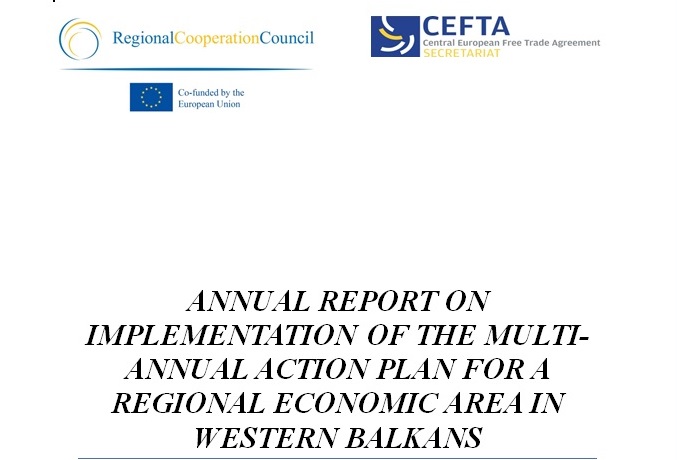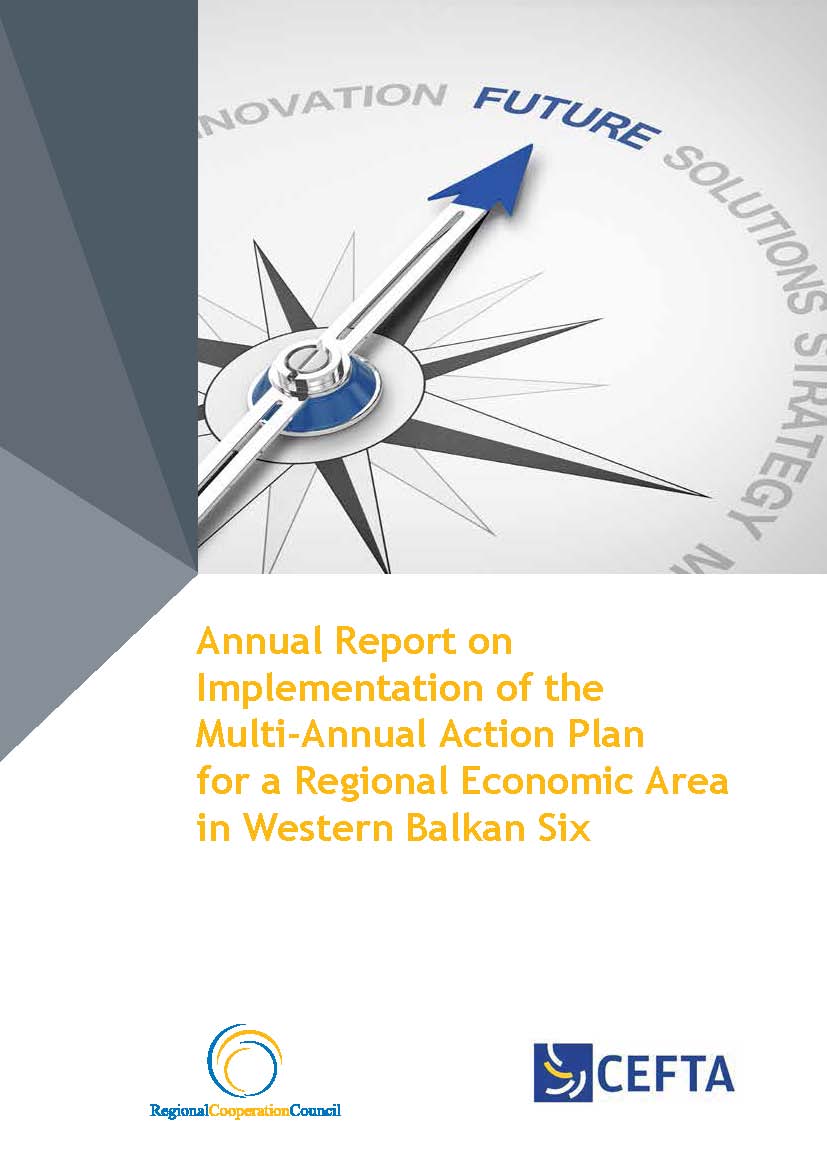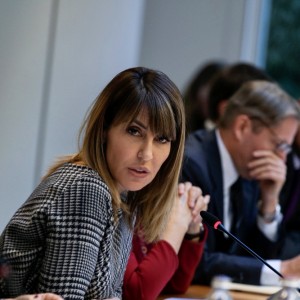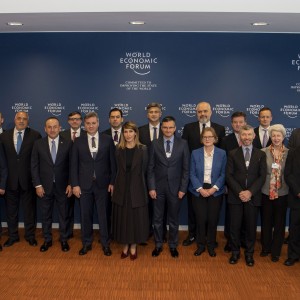The Leaders of Western Balkans endorsed the Multi-annual Action Plan on Regional Economic Area in the Western Balkans (MAP REA), at the Trieste Summit held on 12 July 2017.
The MAP REA, whose development was coordinated by the RCC upon request of the Western Balkans’ Leaders and supported by the European Commission (EC), aims to enable unobstructed flow of goods, services, capital and highly skilled labour; making the region more attractive for investment and trade; and accelerating convergence with the EU, thus bringing prosperity to Western Balkans citizens.
| Results | Next key actions |
|---|---|
| DIGITAL INTEGRATION | |
|
|
| MOBILITY | |
|
|
| TRADE | |
|
|
| INVESTMENT | |
|
|
The MAP REA actions are designed to help the private sector reap the economies of scale of an almost 20-million market, and to refocus the growth model towards more indigenous, long-term driven growth. The actions are focused on:
- promotion of further trade integration;
- introduction of a dynamic regional investment space;
- facilitation of regional mobility;
- creation of a digital integration agenda
Since spring 2017, MAP REA has become the main focus of the RCC’s activities, which are complementary to the SEE 2020 Strategy. Delivering on MAP REA measures can address the fragmentation of our region’s markets; make our region more open to trade and investments; strengthen our research and innovation base and digitalize our societies and businesses. It can also assist our region in meeting the economic criteria for EU membership.
Coordination and monitoring
The coordination mechanisms for MAP REA are established in each economy, with the appointments of MAP REA Coordinators and Component Contact Points finalized. The principle of ‘all-inclusiveness’ is promoted in all structures involved in the coordination and monitoring of activities within the MAP REA. In addition to the internal mechanism, designated persons for each component from CEFTA and RCC Secretariats and DG NEAR of the European Commission are appointed to facilitate the coordination of work. As defined by the Guidelines on Governance, Coordination and Reporting for MAP REA and the Methodology on monitoring and reporting, the role of the RCC is to coordinate MAP REA implementation jointly with CEFTA Secretariat and to monitor MAP REA implementation process, regularly informing MAP REA Coordinators, Prime Ministers’ Sherpas and reporting to the Annual Western Balkans Summits on the progress made.
Regular meetings of the MAP REA Coordinators (31 October 2017, 30 January 2018, 9 October 2018 and 26 March 2019) and MAP REA CCPs (12 March 2018, 15 May 2018 and 19 March 2019) offer the opportunity to review the progress on the MAP REA measures, discuss future activities and deliverables, and elaborate coordination and horizontal aspects for MAP REA implementation.
MAP REA Coordinators meetings and WB Prime Ministers’ Sherpas meetings (18 December 2017, 11 April 2018, 20 June 2018, 26 November 2018 and 22 may 2019) are regularly informed on the progress of implementation of MAP REA measures to allow for strategic discussions on future actions as well as mitigate any delays or risks for the implementation.
The MAP REA Annual reports are prepared by the RCC and CEFTA Secretariats highlighting the key developments at regional level and at the level of each economy from July 2017. The reports enable a snapshot of the progress across all components, proposing next steps and deliverables. Progress on MAP REA is regularly reviewed by Western Balkans Summits and the Economy Minister’s Meetings held as part of the Berlin process.
From London to Poznan, progress and commitments
The Western Balkan Prime Ministers Summit was held on 4-5 July 2019 in Poznan as part of Berlin Process. The Summit recognized the importance of regional cooperation and reaffirmed the strong commitment of Western Balkans to the Regional Economic Area. The Western Balkan’s Leaders welcomed the achievements obtained in implementing MAP REA and committed to deliver on the priorities set for until the next Summit, outlined by the RCC and CEFTA Secretariats on each of the four components.
Chair’s Conclusions of the Poznan Western Balkans Summit, 4 July 2019.
Two years since the endorsement of MAP REA in Trieste and one year since London our region has progressed, although with a mixed track record among the components.

Annual Report on Implementation of the Multi-Annual Action Plan for a Regional Economic Area (MAP REA) in Western Balkans (WB)
report | 24 SEP 2019
The Multi-annual Action Plan (MAP) for a Regional Economic Area (REA) in the Western Balkans Six (WB) helps boost regional economic cooperation through: furthering regional trade integration, enhancing competitiveness and unleashing potentials for growth, promoting the region as an unique space for investment, creating better conditions to ensure free movement of professionals and skilled people, and connecting digitally businesses and citizens.
This report presents key achievements in the implementation of MAP REA in the period 2018-2019
Download: EN

Annual Report on Implementation of the Multi-Annual Action Plan for a Regional Economic Area (MAP REA) in Western Balkan Six (WB6)
report | 03 JUL 2018
The Multi-annual Action Plan (MAP) for a Regional Economic Area (REA) in the Western Balkans Six (WB6), endorsed at the Trieste Summit of 12 July 2017, puts forward a strategic joint agenda for the Western Balkan economies to further regional economic cooperation with a view to unleash the potentials for growth, create conditions for better, transparent and predictable investment climate and improve the overall economic competitiveness of the WB6 economies. The actions introduced in the MAP REA are expected to be implemented until 2020, with some extensions until 2023, focusing on four key components: Trade, Investment, Mobility and Digital Integration.
Download: EN

MAP Stocktaking and Needs Assessment Report
report | 19 JUN 2018
The overall aim of the Multi-Annual Action Plan (MAP) Stocktaking and Needs Assessment Report is to take stock of the measures and resources needed to implement the key objectives set out in the MAP and recommend future actions, both at economy and regional level. The report identifies the major policy gaps and needs, including assistance through bilateral or regional projects, and proposes a set of measures needed to overcome them with a view to effective and timely implementation of the MAP as a whole.
Download: EN










